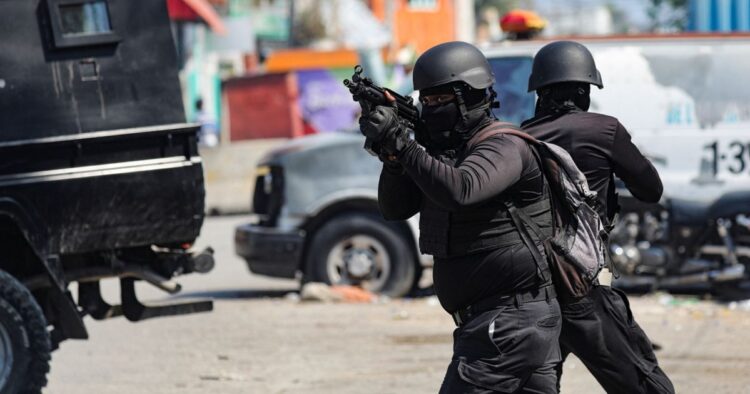In Port-au-Prince, Haiti, a container carrying vital supplies for newborn babies and their mothers, including resuscitators and other critical items, was looted on Saturday, as confirmed by the aid agency UNICEF. This incident adds to the worsening situation in the Haitian capital, where gang violence and a humanitarian crisis have reached alarming levels.
The looted container not only contained maternity and neonatal supplies but also important equipment for early childhood development, education, and water. UNICEF reported that more than 260 humanitarian-owned containers at the port are now under the control of armed groups, following their breach of the main port last week.
Reacting to the theft, UNICEF representative Bruno Maes in Haiti expressed grave concern, stating that the looting occurred at a critical moment when these supplies are most needed. He emphasized the urgent need for an end to the looting and for ensuring safe humanitarian access.
Depriving children of essential health supplies during a time when Haiti’s healthcare system is collapsing is considered a violation of their rights, according to UNICEF. Violence in Haiti has further deteriorated the already fragile healthcare system, with three out of four women and children in the Port-au-Prince area lacking access to basic public health and nutrition.
The situation is dire, with only two functional surgical operating facilities in the capital and six out of ten hospitals across the country unable to operate due to shortages of electricity, fuel, and medical supplies.
In response to the escalating violence, the Haitian National Police conducted a recent operation in a Port-au-Prince neighborhood where a prominent gang leader, Jimmy “Barbeque” Cherizier, operates. Several “bandits” were reportedly killed during the operation, and firearms were seized. The police aim to reclaim areas occupied by armed gangs to restore peace and facilitate the movement of citizens.
Despite these efforts, Haiti continues to grapple with a longstanding political and humanitarian crisis, with approximately 80% of Port-au-Prince currently controlled by gangs, according to UN estimates. All access routes out of the city, including ports and the international airport, have been blocked, exacerbating shortages of food, fuel, and medical supplies.
The severity of the situation prompted the UN to establish an air bridge between Haiti and the neighboring Dominican Republic, with the first flights already completed. However, access remains limited, with private evacuation helicopters being the only option for many, albeit at exorbitant costs.
As the humanitarian catastrophe unfolds, urgent action is needed to address the violence and reopen critical logistics routes to prevent further deterioration of the healthcare crisis in Haiti. Time is running out, and concerted efforts are required to reverse the current trajectory and alleviate the suffering of the Haitian people.

















Comments